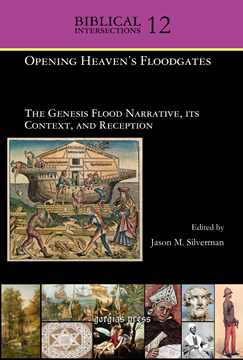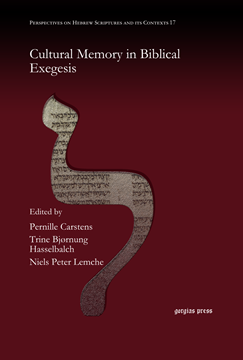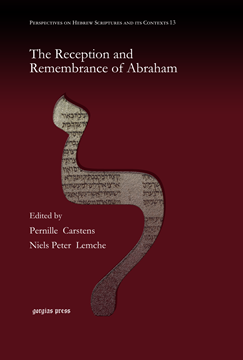Philip Davies
Opening Heaven's Floodgates
The Genesis Flood Narrative, its Context, and Reception
Edited by Jason M. Silverman
Series: Biblical Intersections 12
ISBN: 978-1-61143-894-9
The narrative of Noah’s flood in Genesis draws perennial interest from scholars and the general public. Too often, however, historical and exegetical studies of the text, the story’s reception, and discussion of theological appropriation remain aloof from each other, if not at odds. This volume takes the influential nature of the flood story as an ideal opportunity to bring some of these methods into dialogue.
$218.00 (USD) $130.80 (USD)
Cultural Memory in Biblical Exegesis
ISBN: 978-1-61719-165-7
Cultural memory is the shared reproduction and recollection of what has been learned and retained, normally treated as “the cultural heritage”. The purpose of this book, the first product of the research program Cultural Memory in Biblical Exegesis, is to study how memory is inscribed and embodied in biblical culture and its surrounding area. The essays in this volume seek to open new investigations into cultural memory in biblical and cognate studies, and to include a plethora of methods and perspectives such as the relationship between cultural memory approach and post-colonialism, globalism and epistemology.
$208.00 (USD) $124.80 (USD)
The Reception and Remembrance of Abraham
ISBN: 978-1-4632-0054-1
This book explores the role of the biblical patriarch Abraham in the formation and use of authoritative texts in the Persian and Hellenistic periods. It reflects a conference session in 2009 focusing on Abraham as a figure of cultural memory in the literature of these periods. Cultural memory is the shared reproduction and recalling of what has been learned and retained. It also involves transformation and innovation. As a figure of memory, stories of Abraham served as guidelines for identity-formation and authoritative illustration of behaviour for the emerging Jewish communities.
$161.00 (USD) $96.60 (USD)



